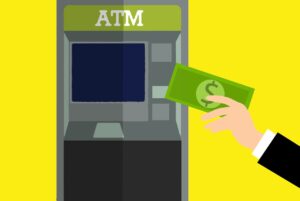 Third-stimulus-check beneficiaries can have their payments seized by creditors or private debt collectors to cover past-due debts, such as credit cards debt and private student loans. The funds can’t be garnished to service unpaid government debts, such as owed child support, federal student loans, and delinquent taxes. Debt collectors, who seize stimulus payments using unfair collection practices can be charged and ordered to return the garnished payments.
Third-stimulus-check beneficiaries can have their payments seized by creditors or private debt collectors to cover past-due debts, such as credit cards debt and private student loans. The funds can’t be garnished to service unpaid government debts, such as owed child support, federal student loans, and delinquent taxes. Debt collectors, who seize stimulus payments using unfair collection practices can be charged and ordered to return the garnished payments.
Why Third Stimulus Payments Aren’t Insulated from All Garnishments
Unlike a typical bill, the American Rescue Plan was enforced through a budget reconciliation process. Congressional Democrats applied this legislative strategy to hasten the passage of the COVID-19 relief bill, which contained the third stimulus payments. The third stimulus package isn’t insulated from all garnishments because legislators were unable to include protections similar to the second stimulus payments. For this reason, stimulus funds are exposed to debt collectors. In simple terms, private debt collectors can seize a stimulus payment.
According to a Tax Foundation policy analyst, protections are in place to insulate third stimulus payments from child support and tax debt. There are, however, no protections to insulate those payments from private debts like debts accumulated because of a civil judgment.
Debts Insulated from Garnishment
Child Support Debt
Child support debt falls under the federal debt category. The 2021 rescue package legislation prohibits the seizure of stimulus payments to service unpaid state or federal debts and other federal taxes.
Unpaid Federal Student Loans
Coronavirus Aid, Relief, and Economic Security (CARES) Act temporarily halted debt collection actions against individuals with past-due federal student loans. The moratorium is still in effect up to September 30, 2021, following an extension by President Biden.
Debts That Might Be Seized From Third Stimulus Checks
Credit Card Arrears and Unpaid Private Student Loans
Individuals with credit card arrears and outstanding private student loans can have their third stimulus check garnished but only after creditors or debt collectors obtaining a court order. The creditors are, however, still limited in seizing the stimulus payments until after they put a lien or attachment on a defaulter’s bank account.
Can IRS Tax Stimulus Checks?
IRS classifies stimulus checks as non-taxable income. Consequently, stimulus checks beneficiaries are not obliged to pay income taxes or report the funds when filing federal tax returns. Taxpayers with delinquent taxes are still eligible for a stimulus payment, as they aren’t garnished by IRS.
Eligible taxpayers, including Property Tax/Rental Rebate Program claimants, can claim a recovery rebate credit if they fail to get stimulus checks or get less than the full amount. They must, however, first file tax returns to claim the credit. Claiming the rebate credit can result in increased tax refunds or lower tax debts.
Seizing of Stimulus Checks by Rogue Debt Collectors
Stimulus beneficiaries can sometimes have their checks unfairly seized by debt collectors or creditors who break the law while trying to recover their money. A consumer protection attorney can review the beneficiary’s situation and advise him or her on the available legal options. If the creditors broke the law, the attorney can help in getting the garnished payments back. The creditors can be also be sued and may be ordered to pay for damages alongside the accrued legal fees.


